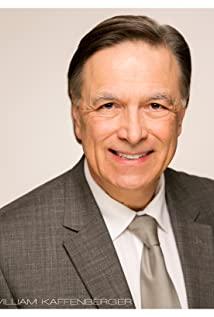Considering that Lincoln is almost a saint-level figure in American history, as far as the whole movie is concerned, he tries to restore historical figures as truthfully and objectively as possible. For example, in order to promote the passage of the 13th Amendment, Lincoln instructed the cabinet members to buy the Democratic House of Representatives through interests, including for the third son who died young, and whether the eldest son should join the army, etc. Lincoln had several quarrels with his wife who was born into a wealthy family. , the director did not miss these trivial things in life at the critical moment in determining history, and still hopes to try his best to present us the most real President Lincoln. But many places are still too secretive, let's talk about the real historical and political background of the time.
First of all, let’s talk about the end of the American Civil War. In fact, from a legal point of view, the United States is a federal country, and the southern states have the right to secede from the federation and form a new country that conforms to their own wishes. Then the North-South civil war initiated by the North is actually a war of aggression against the southern states in terms of legal principles. This is also the reason why European countries support the South. Of course, Europe does not want to see a strong United States, just like the United States today. Other countries cannot be tolerated to grow stronger. Although this is different from our habitual thinking, it is indeed in line with the laws and facts of the United States.
Historically, Lincoln was not a staunch abolitionist, at least far less intense than Stevens in the film. He was more from the perspective of maintaining the unity of the United States. In the early days of the war, the North was in a losing position. By allocating land to white people to develop the West, and publishing the Emancipation Proclamation, it gained popular support, especially when hundreds of thousands of blacks joined the army to fight for freedom. At the very beginning of the film, there was a segment of black soldiers. In the conversation with Lincoln, there are many scenes of black soldiers in the back. Then when the war develops to the point where the North has an absolute advantage, from the perspective of real politics, it is necessary to get rid of the legal dilemma in terms of morality and reality, otherwise the war is against legal principles, and even after the South is defeated, the states According to the constitution, the black slaves can continue to be retained by their own state laws. This is neither in line with the needs of real capitalist development, nor in line with the argument that everyone is equal to the liberation of black slaves, and they have been liberated in the war. Where will the hundreds of thousands of blacks in the United States and the black soldiers who fought in the Civil War go?
I think President Lincoln had the noble idea of equality for all, and he was committed to pushing for a complete, once and for all solution to the problem of slavery. From a more realistic point of view, if the slave issue cannot be completely resolved, the underlying conflict of economic interests between the North and the South, that is, the capitalist factory owners in the North and the serfdom farmers in the South, cannot be resolved. solve. Then there is the consideration of real politics. If the 13th Amendment cannot be passed, even if Lincoln wins the war, it is very likely that hundreds of thousands of people and immeasurable losses will be sacrificed and wasted in vain.
Under such a historical and realistic premise, the contradiction and climax of the film all appeared in the vote of the House of Representatives on the constitution. Lincoln used the wisdom of an excellent statesman to win support from all quarters through a series of tricks, win the support of the conservative Republican faction by agreeing to negotiate with the South, and persuade the radical Republican leader Stevens that facing the media and the public has not completely changed. At the time of awareness, if you directly demand complete equality between blacks and whites, it will inevitably push conservatives to the side of opponents, instructing cabinet members to gradually bribe the democrats who are wavering in the center and make them absent or vote in favor. There is no real so-called minist procedure here. There are many helplessness and means behind it, but in the end, it has created a resolution to abolish slavery that changed the history of the United States and even the world, and is also in line with the historical trend and human morality. If we can't get around the swampy desert traps on the road and just know that with courage, we'll never get to our destination, so what's the use of knowing the right direction?
The tougher decision than how to rig the vote on the amendment is the painful choice between ending the war as quickly as possible and passing the abolition bill. The congressmen, the media, the white people at the time, did not really understand the abolition of slavery, although it seems so natural and correct today, they just hoped to end the war as soon as possible, it was Lincoln who connected the two and hoped The power of the president in the special state of war to promote the abolition of slavery. When the South's defeat was set, and in order to gain votes, Lincoln appointed conservative Republicans to contact the South for peace talks, a conflict that was very difficult to reconcile arose. If the Southern delegation formally negotiated and the war ended quickly and smoothly, no one would care about the abolition bill. But if the war continues, every moment of every day will mean bloodshed and sacrifice. This kind of painful and difficult choice is the time when real wisdom and leadership are needed. Solitary thoughts and telegrams in that late night will change American history later, so should black Americans be grateful to the law of Euclid in Lincoln’s memory?
In the end, after all, Lincoln relied on war and skill, rather than procedural justice, to abolish slavery. The attitude of the representatives of the South when negotiating had foreshadowed the later facts. The amendment was met with fierce resistance in the southern states. The direct consequence was the assassination of President Lincoln and the decades of segregation in the southern states. They recognized the equal rights granted to blacks by the law, but they refused to live with blacks. together. The equality that black Americans have today, and Obama's ability to be elected president, has come through a long period of progress and development.
Even as the most respected president in American history, it is so difficult and not easy for him to do what now seems to be completely in line with universal values, morality and humanity. Nowadays, when we look at film critics, of course we can do whatever we want, but it is not easy to face that situation. Any mistakes and omissions may change or delay the process of history, and being able to stand at that historical moment is another How happy and proud.
For audiences accustomed to Hollywood entertainment and commercial films, this film will not gain much box office and reputation, and even if it is not properly grasped, such themes and plots are likely to be fatal, and can only be appreciated by academics and literary and artistic youths. But sometimes doing things is not for the benefit and the applause of others, but to really do what you think is worthwhile. Spielberg did this with his movies, and so do the other decisions we make in life.
View more about Lincoln reviews










